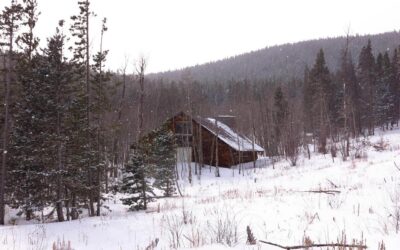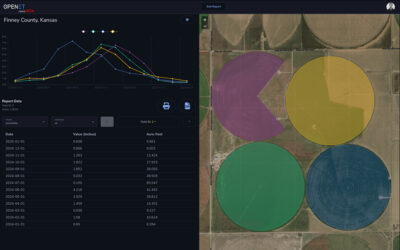Reno, NV (July 19, 2018): The Desert Research Institute is proud to announce that the DRI Science Alive K-12 Outreach Program has been selected as one of several recipients of the first round of funding through Tesla’s new Nevada K-12 Education Investment Fund. This funding is an initial disbursement, part of a multi-year proposed plan Tesla has developed in partnership with DRI to invest in Nevada’s education system.
Because of the proven success and expertise of DRI’s Science Alive K-12 Outreach Program in engaging students in STEM and training Nevada educators, Tesla has looked to DRI to help develop and implement a statewide professional development infrastructure for educators that will give Nevada students the chance to get excited about STEM early on in their education and give them the skills needed to success in a STEM career.
“On behalf of everyone at the Desert Research Institute, we are honored to be a part of this important moment for Nevada students and we are tremendously proud that Tesla has looked to DRI to help develop and implement Nevada’s teacher training infrastructure,” said DRI President Kristen Averyt, Ph.D.
With an initial investment from Tesla of $263,924, the DRI Science Alive program staff will develop a statewide teacher professional development curriculum and onboarding process for new robotics programs in partnership with FIRST, the REC Foundation (VEX), Solar Roller, and the University of Nevada, Reno and the University of Nevada, Las Vegas.
In addition to coordinating teacher trainings, DRI will also be evaluating the effectiveness of robotics programs in student achievement and attitudes toward STEM.
“Our hope is that after implementing and evaluating this model of encouraging STEM engagement through robotics, we can improve upon current methods and ultimately develop best practices for all schools,” said Amelia Gulling, DRI’s K-12 STEM Education Manager. “If we find that this model is successful in Nevada, where we have some of the worst education rankings in the country, then it’s the model that we need to use across the country.”
Official Nevada Department of Education release:
TESLA ANNOUNCES INITIAL $1.5M IN K-12 EDUCATION GRANTS
CARSON CITY, Nev. – As part of its commitment to contribute $37.5 million over five years to K-12 education in Nevada, Tesla announced an initial $1.5 million in funding grants at today’s Nevada Board of Education meeting. The goal of the investment is to encourage students of all backgrounds to consider a career in science, technology, engineering and math (STEM) or sustainability, and to develop the next generation of engineers in Nevada.
“An integral part of our vision for the new Nevada economy is developing an educated workforce that meets the demands of the industries coming into our state,” said Gov. Brian Sandoval. “With this initial investment, even more students in Nevada will be exposed to STEM education and we are grateful to Tesla for their commitment to education in Nevada.”
Tesla announced the following education grants today:
- $315,550 to FIRST Nevada and $127,100 to Robotics Education and Competition Foundation (VEX) as part of a multi-year investment for the establishment of a quality robotics program at every school in Nevada.
- $263,924 to the Desert Research Institute for the initial development of a statewide teacher training infrastructure focusing on robotics and STEM, with future collaboration in partnership with the University of Nevada, Reno and the University of Nevada, Las Vegas.
- $262,700 to The Envirolution, Inc. for the Project ReCharge initiative, a STEM-based program which collaborates with community partners, school districts, teachers and students, to deliver hands-on education related to energy, sustainability, and project-based learning opportunities that empower students to make local schools and businesses more energy efficient.
- $200,000 to Jobs for Nevada’s Graduates (JAG Nevada) to deliver mentoring, employability skills development, career association, job development, and job placement services to students across the state. JAG Nevada will be developing a new Education to Employment pathway across Nevada industries, and expanding access to 20 percent more students with this first investment.
- $154,083 to Sierra Nevada Journeys (SNJ) to foster students’ STEM passion and achievement at an early age. SNJ will provide 250 scholarships for students in underserved communities to attend the Overnight Outdoor Learning program at Grizzly Creek Ranch, increase access to SNJ STEM programs to 900 additional students, and kickstart a new Girls in Engineering camp in partnership with Tesla team members.
- $76,643 to Energetics Education, Inc. to pilot the Solar Rollers program in Washoe County. This initiative challenges high school teams to design, build, test and race sophisticated solar-powered radio-controlled cars while learning the fundamental concepts of a complete energy system.
- $50,000 each to the Clark County and Washoe County School Districts as part of the establishment of multi-year special assignment roles in career technical education (CTE) offices to train and implement programming from within, while also supporting neighboring districts.
“The demand for STEM jobs in Nevada will continue to grow dramatically over the next few years,” said JB Straubel, Tesla’s Chief Technology Officer. “That is why we’re investing in initiatives that inspire students to choose a career in STEM and sustainability and give them a foundation for success.”
Tesla selected these entities in collaboration with an advisory group comprised of Nevada education leaders, business leaders, non-profits and government officials.
“Tesla’s commitment supports our vision of becoming the fastest improving state in the nation in education,” said Steve Canavero, Ph.D., Superintendent of Public Instruction. “Lofty goals such as these don’t materialize in a vacuum. In addition to the partners we have in our school districts and charter schools, we have also sought out partners in industry. Tesla has been incredibly collaborative and thoughtful in providing us data and evidence based material that will help inform our decisions and their investment in the new Nevada economy.”
Tesla will be making continuing investments in existing initiatives, and regularly announcing new entities receiving funding on a quarterly basis, pending investment reviews. In addition to this K-12 investment, Tesla currently has a high school graduate apprenticeship, the Manufacturing Development Program, encouraging Nevadans to learn about manufacturing fundamentals in partnership with the Governor’s Office of Economic Development, and regularly hosts students and teachers at Gigafactory 1 near Sparks, Nev. Tesla’s mission is to accelerate the world’s transition to sustainable energy. Tesla builds not only all-electric vehicles but also infinitely scalable clean energy generation and storage products. Entities interested in learning more about this investment and opportunities to partner with Tesla can reach out to educationprograms@tesla.com.


